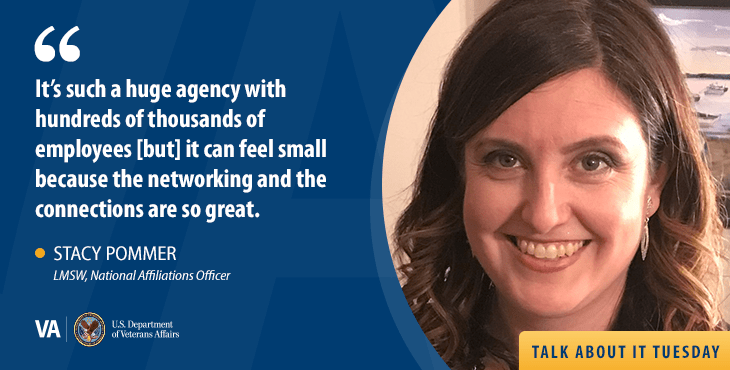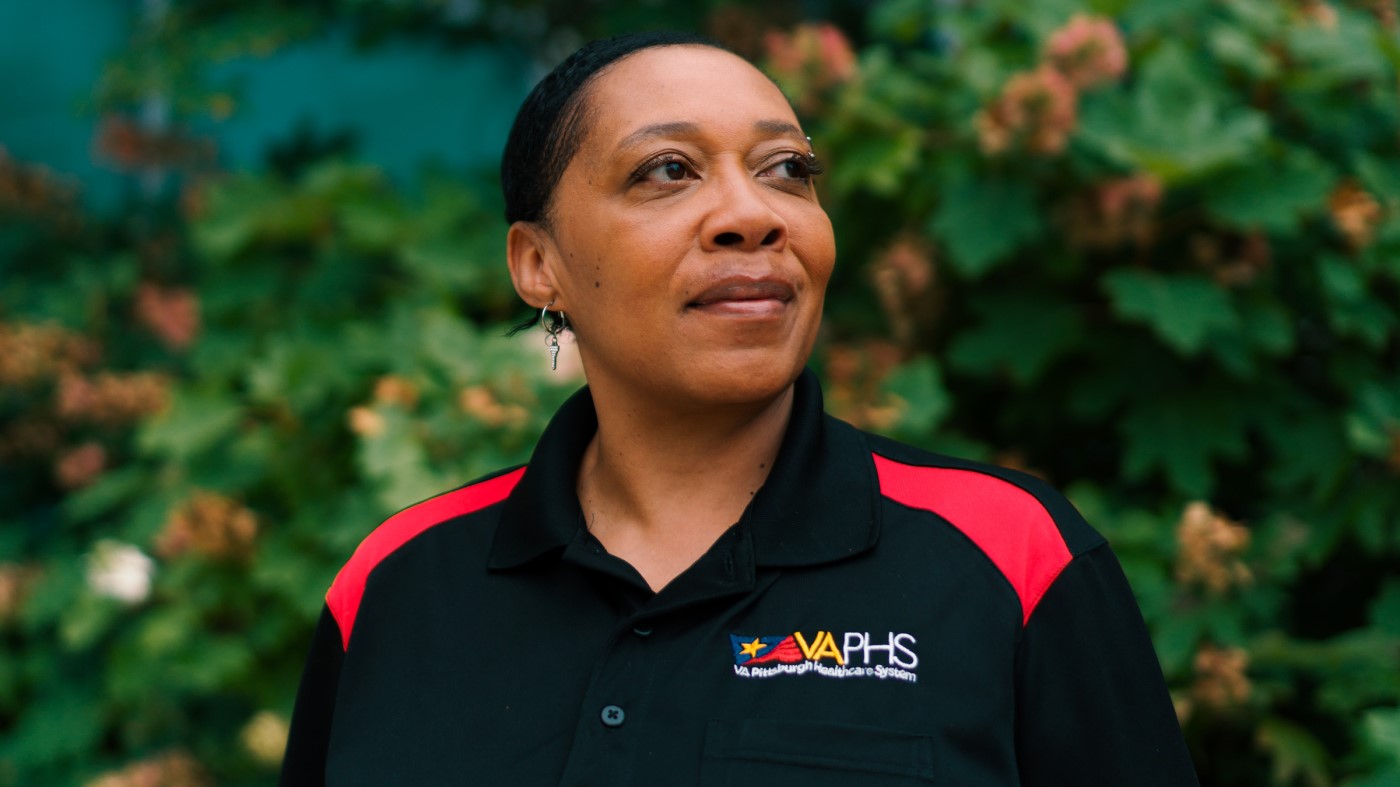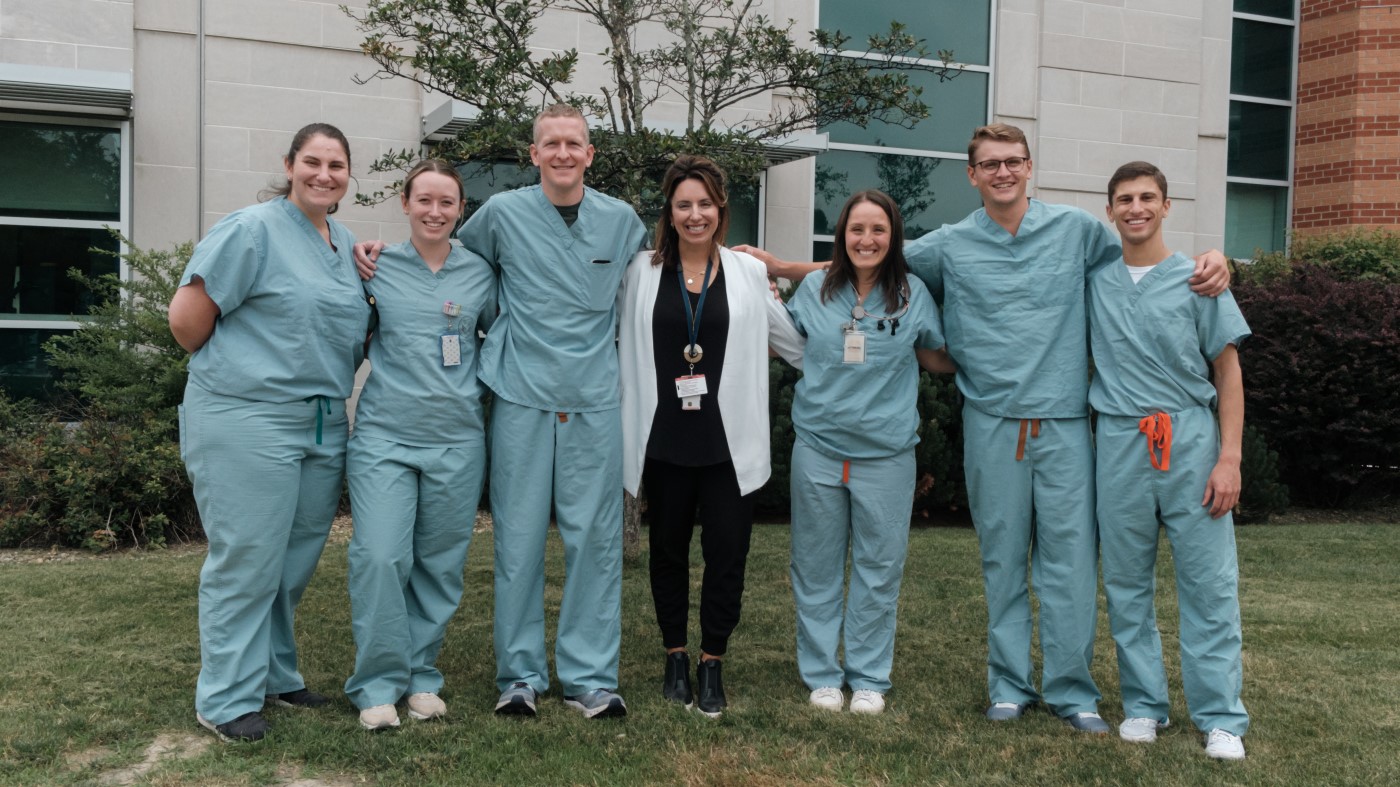Social workers at VA have nearly limitless career potential, according to Stacy Pommer, LMSW, national affiliations officer in our Office of Academic Affiliations.
“We see social workers in primary care, mental health, specialty clinics, program evaluation, case management, inpatient, outpatient — you name it,” Pommer said. “There really are so many different experiences.”
Pommer recently appeared on Talk About It Tuesday, a live weekly broadcast at noon ET on LinkedIn. She sat down with host Mike Owens to discuss social work careers as part of our monthly series spotlighting critically needed health care occupations to mark the 75th anniversary of the Veterans Health Administration (VHA).
“The sky’s the limit. There are so many opportunities,” she said.
Versatile career
We are the largest employer of master’s-level social workers across the nation, with more than 16,000 of these multitalented professionals working at VA sites across the nation. We also help train over 1,500 social work students each year and maintain affiliations with more than 230 social work master’s degree programs.
Once you’ve landed a social work position at VA, your career can go in almost any direction you choose – from clinical work to research to education.
Take advantage of professional development opportunities, leadership programs, and “stretch assignments” that will help you grow your career skills and determine where your interests lie, Pommer advised.
You’ll be part of a connected team that is driven by the rewarding mission of caring for our nation’s heroes. And while VA is a large federal agency, it doesn’t feel that way to Pommer.
“It’s such a huge agency with hundreds of thousands of employees, [but] it can feel small because the networking and the connections are so great,” she said. “I still am in touch with the VA ophthalmologist who connected me with even wanting to be a social worker.”
A social worker’s journey
Pommer met that ophthalmologist shortly after college while working as an event planner. Declared legally blind as a college senior due to juvenile macular degeneration, Pommer became interested in working in blind rehabilitation services at VA.
Realizing she would need an advanced degree, she went back to school to complete a master’s in social work.
After completing an internship at VA’s NY Harbor Healthcare System, Pommer was noncompetitively hired to conduct mental health screenings for Veterans at primary care appointments.
She also worked as a visual impairment services team coordinator for several years, treating patients as young as 22 and as old as 102. During this time, she had the chance to supervise social work students, teach at Columbia University and conduct disability trainings.
She then pivoted, taking on a variety of roles in administration and policy development that draw on her clinical background to help improve care that Veterans receive. She now oversees clinical training programs for more than 40 health professions.
“It’s an interesting trajectory, and there are so many ways you can build a career,” Pommer said.
Work at VA
Ready for a versatile career helping improve the lives of Veterans? Join VA, where you’ll enjoy all the advantages of working for the largest integrated health system in the nation with the close-knit camaraderie of a small team.
- SEARCH for open social work positions.
- WATCH Stacy Pommer’s interview.
- READ more about social work careers at VA.
- EXPLORE vacareers.va.gov.
Topics in this story
More Stories
Whether it’s access to the great outdoors or a calmer pace in your everyday life, you can find it in rural VA communities around the country.
If you’re looking for an opportunity to provide care to Veterans outside a traditional clinical setting, Home Based Primary Care (HBPC) is a great option.
A key part of your job search is finding the right fit for you and your skills, and workplace culture can impact that dramatically.






